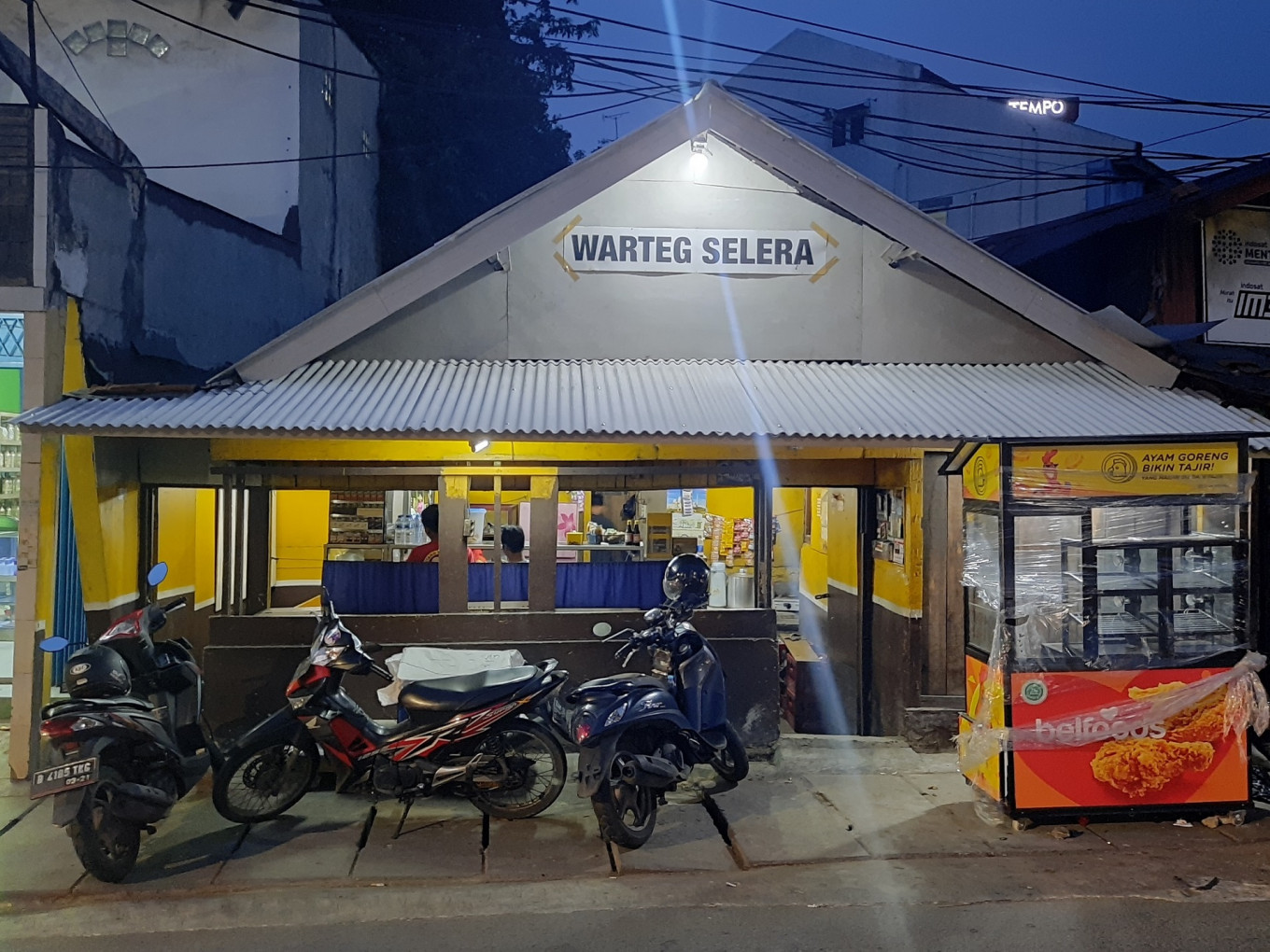Popular Reads
Top Results
Can't find what you're looking for?
View all search resultsPopular Reads
Top Results
Can't find what you're looking for?
View all search resultsGovt stimulus package for MSMEs misguided, lacks reliable data: Experts
Institute for Development of Economics and Finance (Indef) senior economist Aviliani said the government should disburse stimulus that supports MSMEs from the demand side, such as by allocating funds to purchase the small businesses’ products. Currently, the government’s stimulus mainly focuses on the supply side, such as through the micro credit (KUR) and loan relaxation program, she added.
Change text size
Gift Premium Articles
to Anyone
T
he government’s COVID-19 stimulus package for micro, small, and medium enterprises (MSMEs) is misguided and hampered by a lack of reliable data, experts have said.
Institute for Development of Economics and Finance (Indef) senior economist Aviliani said the government should disburse stimulus that supports MSMEs from the demand side, such as by allocating funds to purchase the small businesses’ products. Currently, the government’s stimulus mainly focuses on the supply side, such as through the micro credit (KUR) and loan relaxation program, she added.
“There are no incentives for MSMEs that push up demand,” she said on Tuesday during an online webinar held by the National Development Planning Agency (Bappenas).
Furthermore, Aviliani criticized the government’s policy to push state-owned banks to disburse KUR to MSMEs during the pandemic, as it created “cannibalistic” competition between state-owned banks and private banks.
“MSMEs that previously took out loans at private banks are moving to state-owned banks as a result of the low interest rate. In the end, the program misses its target,” she said.
Indonesia’s economy relies heavily on small businesses, which account for more than 60 percent of gross domestic product (GDP) and employ a majority of the labor force.
With the impact of the pandemic on MSMEs, the government has allocated Rp 123.46 trillion (US$8.3 billion) to aid small businesses and cooperatives during the health crisis, as part of its larger stimulus package of Rp 695.2 trillion.
As of Sept. 2, the government had disbursed 42.14 percent of the total stimulus for MSMEs, or Rp 52.03 trillion, according to national economic recovery (PEN) task force data.
Part of the reason for the slow disbursement is a lack of awareness among small businesses about the COVID-19 stimulus for MSMEs, according to SMERU Research Institute researcher Palmira Permata Bachtiar.
“The majority of MSMEs don’t know the government provides various stimulus programs for their businesses,” she said during the discussion.
For the payment of income tax for MSMEs, popularly known as final income tax (PPh final), only 10 percent of MSMEs submitted a request to use the government’s tax relaxation scheme, Palmira said.
Furthermore, the government does not have a single criterion to describe MSMEs, nor a unified set of data regarding the number of MSMEs, which further complicates its effort to disburse the COVID-19 aid.
Statistics Indonesia (BPS) categorizes MSMEs based on the number of employees, while other agencies base it on Law No. 20/2008 on MSMEs, which uses annual revenue and assets as the determinants. In addition, the Finance Ministry only uses annual assets to determine MSMEs for tax purposes.
According to the latest BPS data on the 2016 Economic Census, there were 26.2 million MSMEs nationwide, which contribute to more than 98 percent of the country’s economy. Meanwhile, Cooperatives and Small and Medium Enterprises Ministry data show that Indonesia had 61.6 million MSMEs in 2016, which went up 4.2 percent year-on-year (yoy) to 64.2 million MSMEs by 2018.
“How many MSMEs do we have? According to the Cooperatives and SMEs Ministry we had almost 64.2 million in 2018, but the number itself is a projection and does not record them by name and address,” she said.
During the discussion, Industry Ministry director general for small and medium enterprises Gati Wibawaningsih said the banks’ lending preference for MSMEs was also clouded by the government loan disbursement target.
For example, it leads the banks to prefer to disburse loans to MSMEs in the retail sector rather than those in the manufacturing sector, to channel the loans as quickly as possible, as those in the retail sector are also seen to have lower risk, with a quick return on investment (ROI), she said.
“Because the banks are chasing the disbursement target, in the end they provide loans based on the target and not on the future outcome,” she said, adding that the manufacturing sector tended to provide more jobs.
Read also: Govt to extend assistance to 3 million more small businesses
The government has increased this year’s KUR loan disbursement by Rp 22.2 trillion, to a total of Rp 198.73 trillion.
Coordinating Economic Affairs Ministry data show that KUR loan disbursement had reached Rp 89.2 trillion for 2.67 million borrowers as of July.










